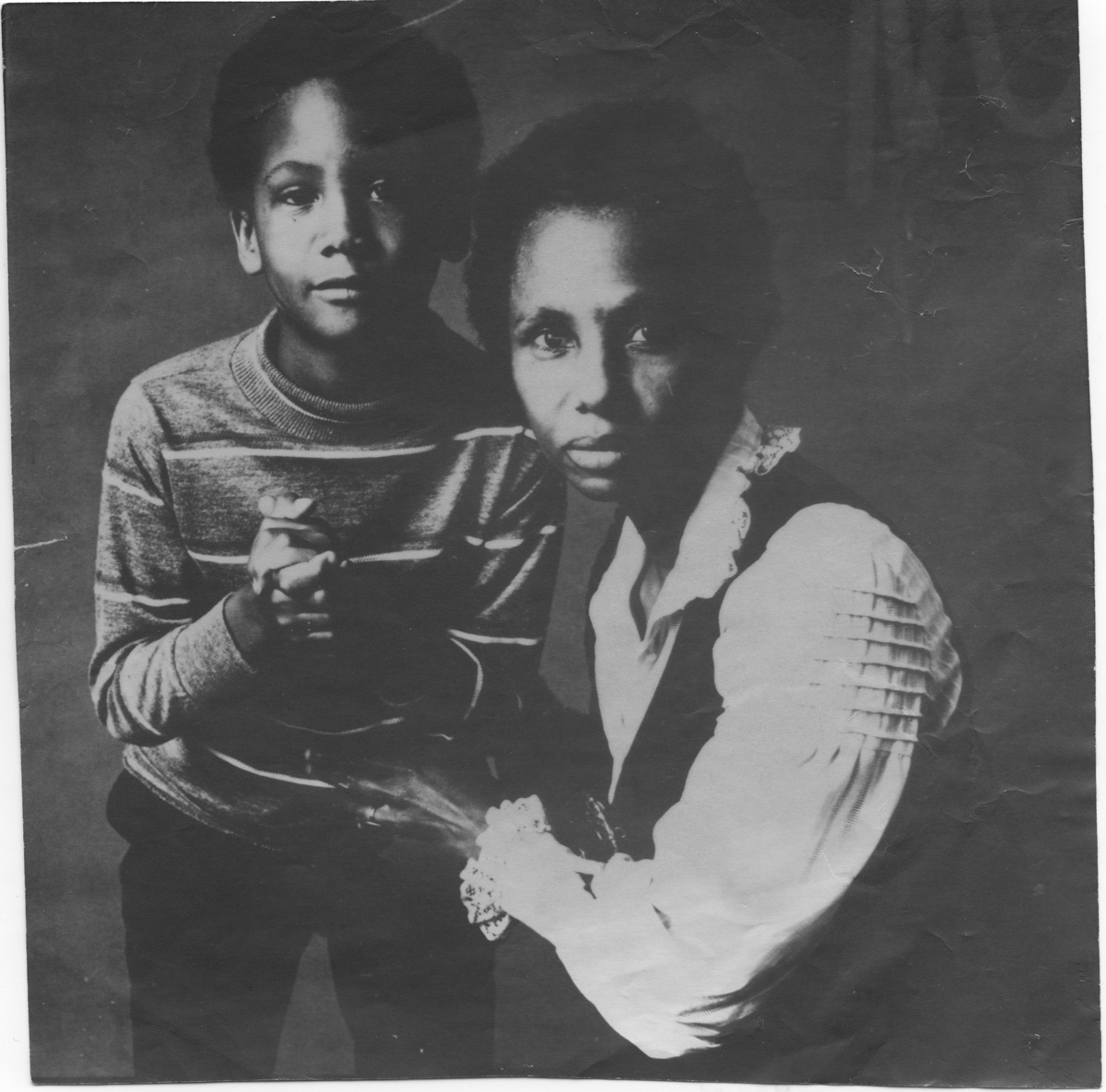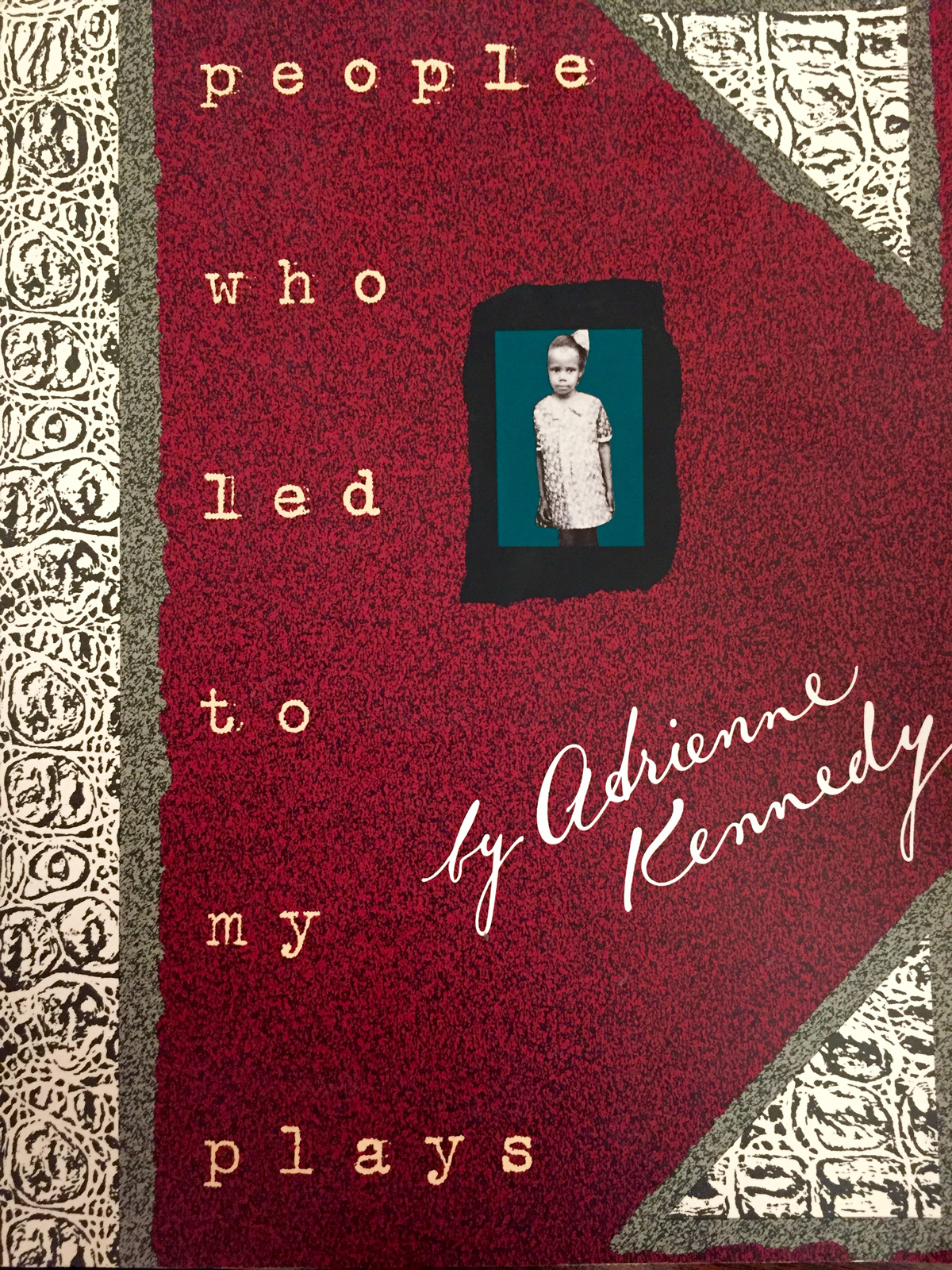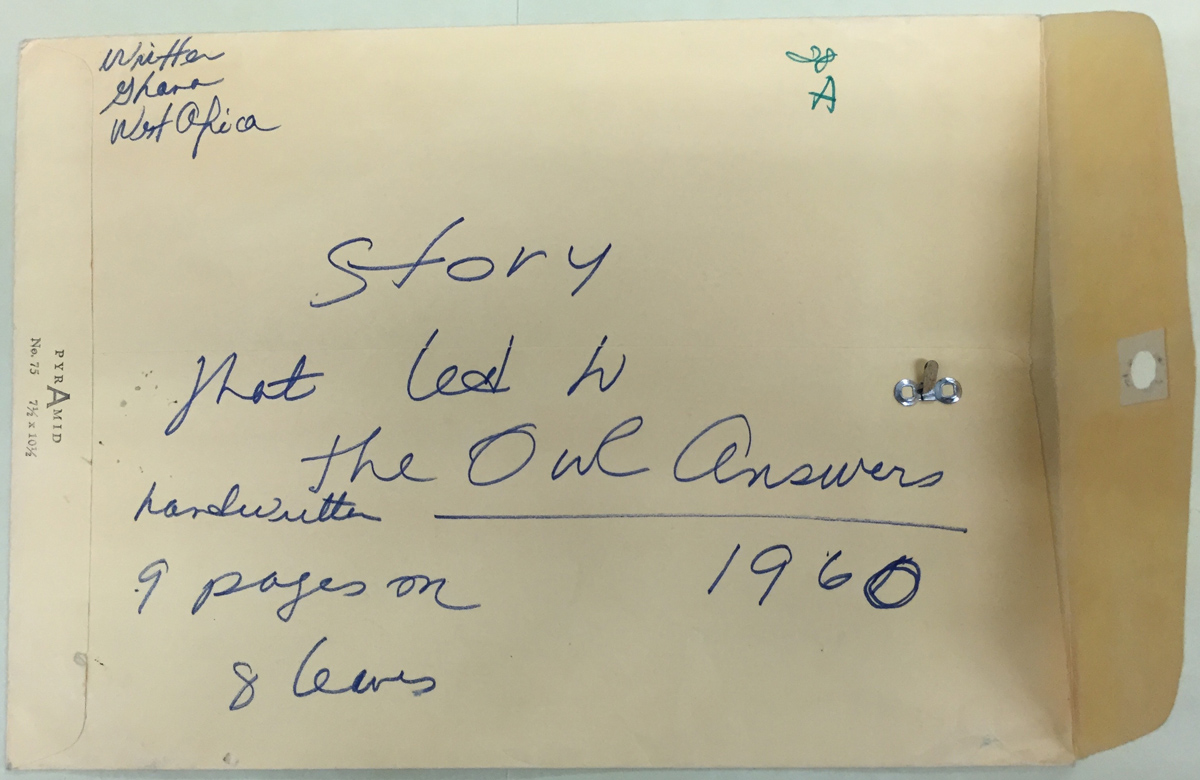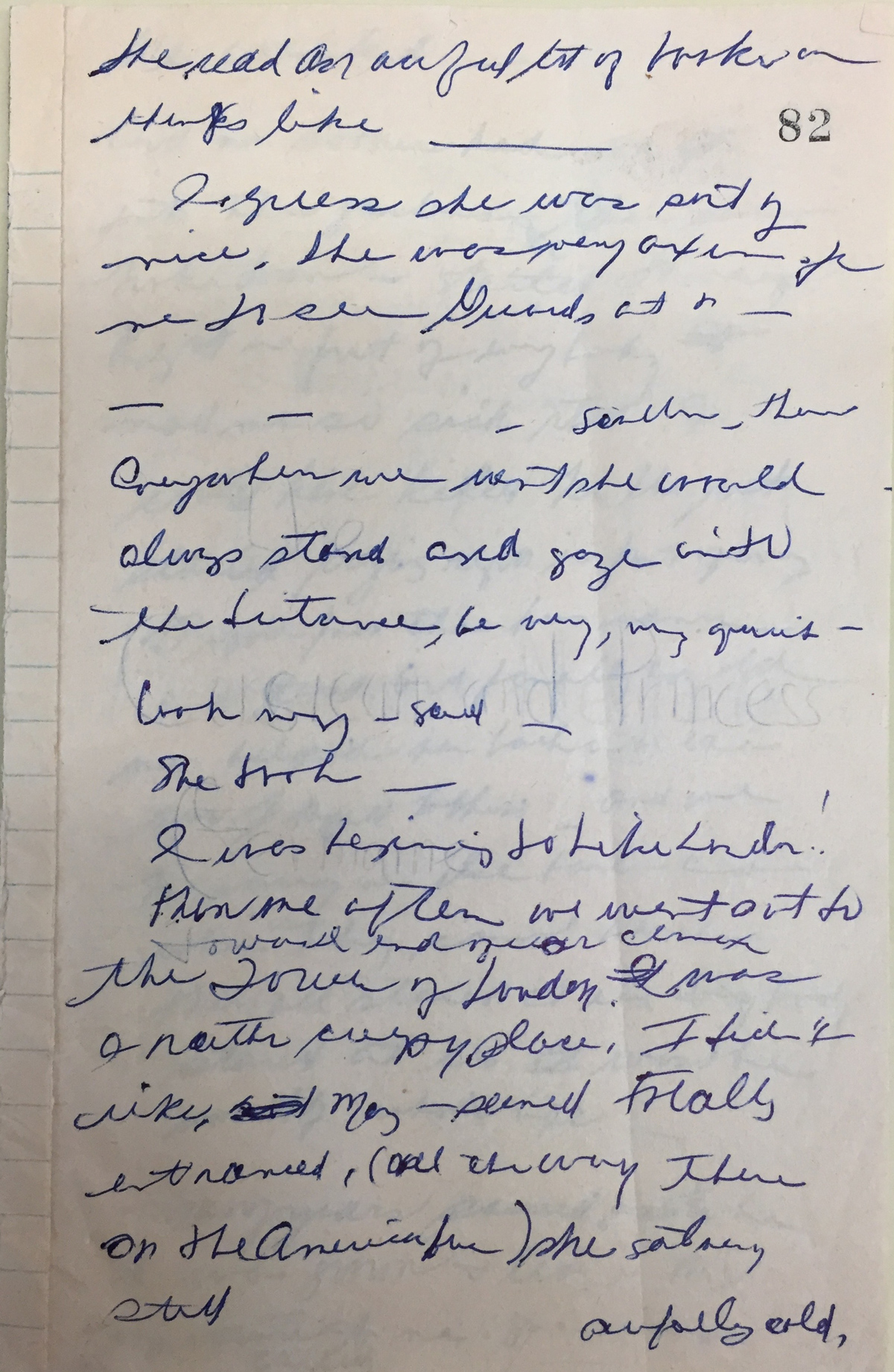
The Harry Ransom Center celebrates the reissue of Adrienne Kennedy’s groundbreaking memoir People Who Led to My Plays from Theatre Communications Group. First published in 1987 as a response to the frequently asked question of what inspirations have influenced her work, Kennedy recorded brief, fragmentary memories covering 1936–1961. A deeply influential and radically innovative kind of memoir, novelist Ishmael Reed called these glimpses into her life “a new form of black autobiography.”

Adrienne Kennedy (b. 1931) is among the most influential American playwrights of the twentieth century and was a leading voice in the Black Arts Movement in the 1960s. One of her most famous works, Funnyhouse of a Negro (1964), captures something of Kennedy’s style and many recurring themes that appear in her work. A single character, Sarah, is presented through four contradictory aspects of her self: the Duchess of Hapsburg, Queen Victoria, Jesus Christ, and Congolese president Patrice Lumumba. The narrative is dream-like and fragmented—a powerful and haunting exploration of a person grappling with her history and her place in the world. Other major works by Kennedy include The Owl Answers (1965), A Lesson in Dead Language (1966), Sun (1968), An Evening with Dead Essex (1972), A Movie Star Has to Star in Black and White (1976), Electra and Orestes (1980), The Alexander Plays cycle (1992), and more recently her collaborations with her son Adam Kennedy, which include Sleep Deprivation Chamber (1996), and Mom, How Did You Meet the Beatles? (2008).

Kennedy is the recipient of three OBIE Awards for Excellence in Off-Broadway Theatre including a lifetime achievement award, the American Academy of Arts and Letters Award, an NEA Creative Writing Fellowship, two Rockefeller grants, and a Guggenheim fellowship. In 2006, Kennedy received the PEN/Laura Pels International Foundation for Theater Award as a Master American Dramatist. In 1995, Michael Feingold of the Village Voice wrote that “with Beckett gone, Adrienne Kennedy is probably the boldest artist now writing for the theater.”

Adrienne Kennedy’s papers first came to the Harry Ransom Center in 1992 as part of the Center’s American playwrights collections that include Tennessee Williams, Arthur Miller, Lillian Hellman, Terrence McNally, Sam Shepard, and David Mamet, among others. The papers are fully accessible for research in the reading room. The new printing of People Who Led to My Plays and other works by Kennedy are available in the lobby gift shop, and a selection of Kennedy’s papers, including original manuscripts from People Who Led to My Plays, will be on display in the Ransom Center lobby through April 27.